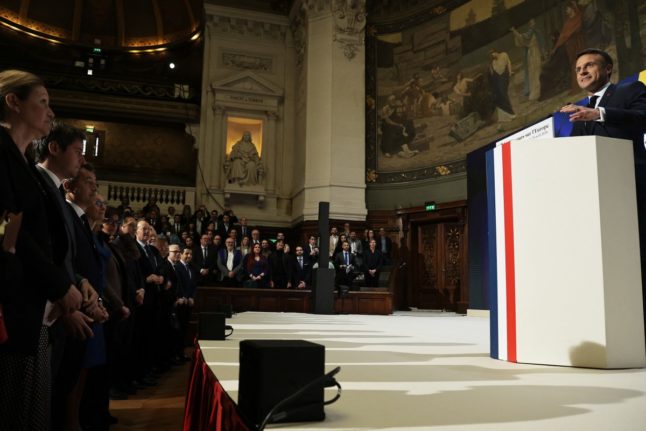The EU is racing to approve the world’s first comprehensive AI law after the issue took on greater urgency when the ChatGPT bot burst onto the scene last year, highlighting AI’s advances.
ChatGPT wowed with its ability to produce poems and essays within seconds.
AI proponents say the technology will benefit humanity, transforming everything from work to healthcare, but others worry about the risks it poses to society, fearing it could thrust the world into unprecedented chaos.
Brussels intends to use powerful legal armoury to protect EU citizens’ rights, especially those covering privacy and data protection.
The European Commission, the EU’s executive arm, first proposed an AI law in 2021 that would regulate systems based on the level of risk they posed. For example, the greater the risk to citizens’ rights or health, the greater the systems’ obligations.
Negotiations on the final legal text began in June, but a fierce debate in recent weeks over how to regulate general-purpose AI like ChatGPT and Google’s Bard chatbot threatened talks at the last minute.
Some member states worry that too much regulation will stifle innovation and hurt the chances of producing European AI giants to challenge those in the United States, including ChatGPT’s creator OpenAI as well as tech titans like Google and Meta.
Negotiators from the European Parliament and EU member states were due to meet on Wednesday, with talks expected to last into the evening. Although there is no set deadline, senior EU figures have repeatedly said the bloc must finalise the law before the end of 2023.
Stumbling blocks
EU diplomats, industry sources and other EU officials have warned the talks could end without an agreement as stumbling blocks remain over key issues.
Others have suggested that even if there is a political agreement, several meetings will still be needed to hammer out the law’s technical details.
And even if EU negotiators agree, the law would not come into force until 2026 at the earliest.
The main sticking point is over how to regulate so-called foundation models – designed to perform a variety of tasks – with France, Germany and Italy calling to exclude them.
“France, Italy and Germany don’t want a regulation for these models,” said German MEP Axel Voss, who is a member of the special parliamentary committee on AI.
The parliament, however, believes it is “necessary … for transparency” to regulate such models, Voss said.
Late last month, the three biggest EU economies published a paper calling for an “innovation-friendly” approach for the law known as the AI Act.
Berlin, Paris and Rome do not want the law to include restrictive rules for foundation models, but instead say they should adhere to codes of conduct.
Many believe this change in view is motivated by their wish to avoid hindering the development of European champions – and perhaps help companies such as France’s Mistral AI and Germany’s Aleph Alpha.
Progress
Another sticking point is remote biometric surveillance – basically, facial identification through camera data in public places.
The EU parliament wants a full ban on “real time” remote biometric identification systems, which member states oppose. The commission had initially proposed that there could be exemptions to find potential victims of crime, including missing children.
There have been suggestions MEPs could concede on this point in exchange for concessions in other areas.
The EU’s top tech enforcer, Thierry Breton, remains hopeful that an agreement can be reached
“Significant progress has been made by both sides,” Breton, the EU’s internal market commissioner, said on Tuesday, pointing to the mandate given to Spain, which holds the rotating EU presidency, to conclude negotiations on Wednesday.
Concerns over AI’s impact and the need to supervise the technology are shared worldwide.
US President Joe Biden issued an executive order in October to regulate AI in a bid to mitigate the technology’s risks.



 Please whitelist us to continue reading.
Please whitelist us to continue reading.
Member comments